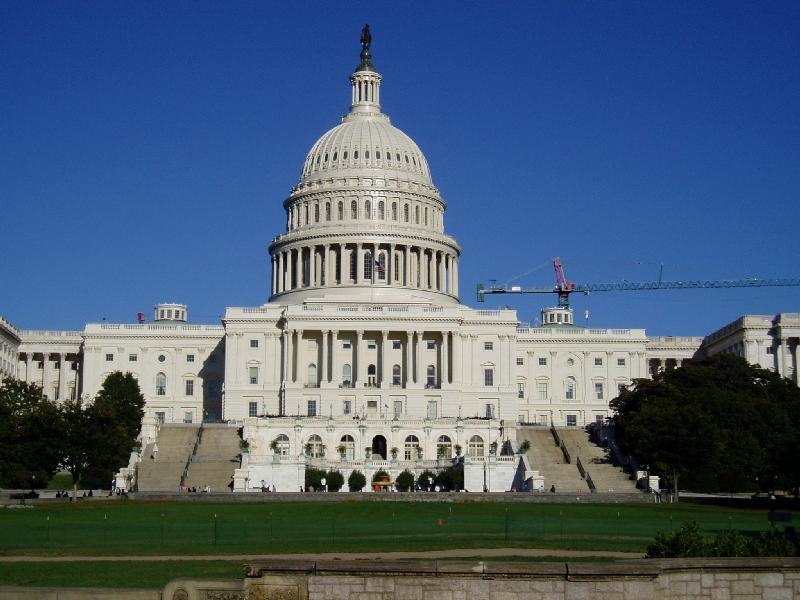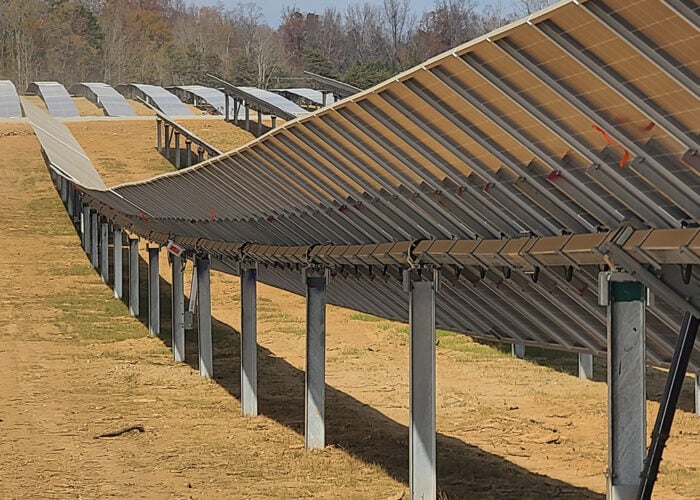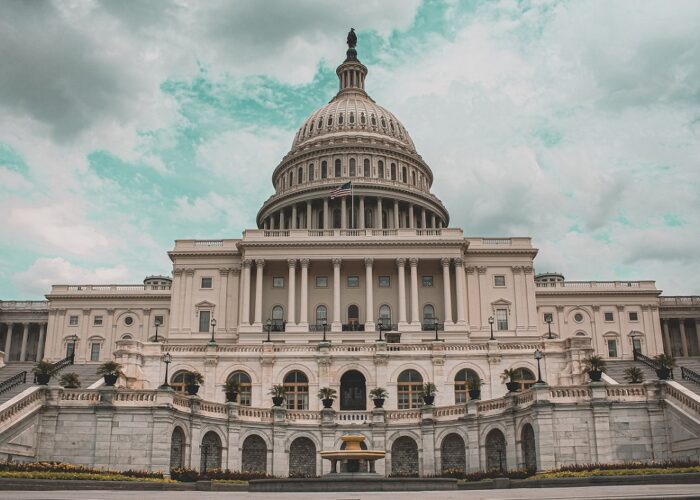
The US Senate has passed the landmark bipartisan infrastructure bill, paving the way for US$1.2 trillion of investment into the nation’s infrastructure.
But discussion has quickly moved to forthcoming acts which could pave the way for trillions of dollars of extra funding, including a proposed extension of the solar investment tax credit that has received the support of more than 180 members of congress.
Unlock unlimited access for 12 whole months of distinctive global analysis
Photovoltaics International is now included.
- Regular insight and analysis of the industry’s biggest developments
- In-depth interviews with the industry’s leading figures
- Unlimited digital access to the PV Tech Power journal catalogue
- Unlimited digital access to the Photovoltaics International journal catalogue
- Access to more than 1,000 technical papers
- Discounts on Solar Media’s portfolio of events, in-person and virtual
Earlier today senators voted 69-30 in favour of bill H.R 3684, otherwise known as the Infrastructure Investment and Jobs Act, after months of protracted negotiations between Democrats and Republicans. The bill, which has endured a rocky road to its passage, will allocate US$1.2 trillion in investment for roads, railways, high-speed internet and power infrastructure.
Around US$73 billion has been allocated to energy infrastructure designed to allow for greater quantities of renewable power to connect to the grid.
Late last month US President Joe Biden and the bipartisan group of senators who tabled bill announced an agreement on the finer details of the bill, however it was not until earlier today (10 August) that senators in the US voted to approve the bill following weeks of further negotiations.
Suzanne Clark, president and CEO of the US Chamber of Commerce, said the nations; elected leaders were “on the precipice of a historic investment” in US infrastructure following the vote.
“Turning this long-overdue promise into a reality will grow our economy and strengthen our competitiveness for decades to come. We applaud the Senate for doing its job on a bipartisan basis, thoughtfully debating and passing much-needed infrastructure legislation that will finally invest in America’s roads, bridges, and other critical infrastructure, create millions of jobs, and improve the quality of life for every American,” she said.
The bill must now pass through the House of Representatives before it can be passed into law by President Biden, however this is expected to be a formality with Democrats holding a slim majority in the House.
With the infrastructure bill now on its way, attention has quickly fallen towards a secondary infrastructure package, valued at upwards of US$3.5 trillion, which the Democrats are to pursue through budgetary reconciliation.
The US Senate also voted on a motion to proceed with establishing a congressional budget for the US Government, a resolution which would facilitate the budgetary reconciliation, but this vote fell back on party lines, with Democrats winning a vote 50-49. One Republican senator, Mike Rounds, was absent from the vote.
The budgetary reconciliation is to incorporate a number of policy initiatives which would directly support the US solar industry, most notably an extension of the ITC and the creation of a direct-pay option for it. Earlier today a letter co-signed by more than 180 members of congress co-signed a letter addressed to both speaker of the house Nancy Pelosi and majority leader Steny Hoyer calling on the officials to prioritise solar supports within the infrastructure package.
The letter, which can be read here, calls for long-term extensions and expansions to the ITC and production tax credit and the creation of new measures for domestic clean energy manufacturing, a nod to the bill tabled by Democrat senator Jon Ossoff which would, if passed, incentivise the manufacture of polysilicon as well as solar wafers, cells and modules in the US.
“The clean energy sector was projected to add 175,000 jobs in 2020 but the COVID-19 pandemic upended the industry and roughly 300,000 clean energy workers were still out of work in the beginning of 2021. Clean energy, energy efficiency, and clean transportation tax incentives are an important part of bringing these workers back. It is critical that these policies support strong labor standards and domestic manufacturing,” the letter reads.
Eric Duncan, vice president of congressional affairs at the Solar Energy Industries Association, said this week’s report issued by the Intergovernmental Panel on Climate Change (IPCC) made it clear that “we are in the midst of a climate emergency and that we need to act now”.
“The clean energy champions on this letter understand the stakes, and we echo their call to support policies that have a track record of driving clean energy deployment.
“The warming planet and growing climate-related disasters require bold policy action, but it also presents an opportunity for economic prosperity in every corner of the country. America can lead the world in clean energy deployment, manufacturing, jobs and investment, and we urge Congress to act now so we can meet this climate moment,” he said.






